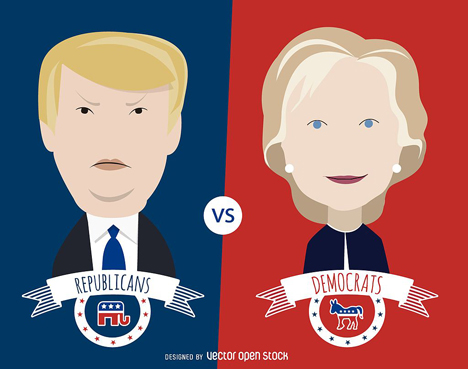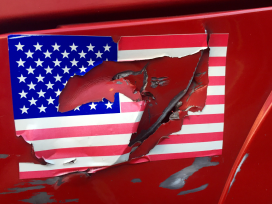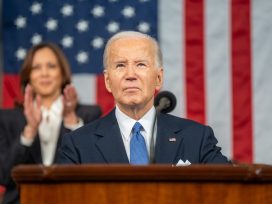For a while after the first Presidential debate a few days ago, the Hillary people were elated. They’d anticipated a giant troll crushing their candidate by the sheer absurdity of his rhetoric, but what they got was an Oz-like figure who was reduced to making irrelevant comments while his opponent was speaking. Trump’s performance was sullen and dispirited, a fact that even the Trump camp had to acknowledge.
But the elation has faded quickly: voters seem to be on edge; nobody is complacent.
On my Facebook feed, friends argue with friends with a vehemence I’ve never seen before. They fight not so much over Trump vs. Clinton – in my circle of friends no one would admit to supporting Trump – but whether Hillary would be any better than Donald and if there’s any point in voting at all. In the coffee shop where I eat breakfast, a retired hotel owner told me through gritted teeth that he supports Trump because at least he will vet those immigrants who ‘keep blowing things up’. The hostess in the same coffee shop complained that her father works three jobs, her husband works two, taxes are killing them, the country has never done a favour for anyone she knows – and neither Hillary nor Trump offer a prospect of relief.
Everybody feels unrepresented. Neither Hillary nor Trump speak for the centre faction of their parties, so what used to make US elections fairly predictable – party loyalties that extended back through generations – now belongs to a bygone era. By and large, younger voters don’t even register as members of a party.

Illustration: VectorOpenStock. Source:Wikimedia
This isn’t to say that third parties have generated much enthusiasm. The Libertarian and Green parties are polling at below 10 percent of the electorate, although among voters 18-29 they make up about one third of the vote. There is now a distinct possibility that many people will not vote at all. A young theatre director, the coffee-shop hostess above and a Republican financial advisor I know are open about saying that they won’t vote in this Presidential election. I don’t recall this attitude from previous elections for President; whether they change their minds if they go on to vote in other contests on 8 November remains to be seen.
The unhappiness among voters is palpable. It doesn’t seem to be limited to the US, but that doesn’t make it any easier to explain. Everybody is disgruntled about different things. Depending on whom you talk to, they complain about high rents and taxes, stressful jobs, loss of civility, robot phone calls, police violence, terrorism, disparity between rich and poor, food additives: You name it, and there’s something beyond one’s control that causes helpless frustration. Not acts of God or Nature, but acts of other human beings who are taking advantage of us. So we’re frustrated, pissed off, cranky and not at all interested in translating this frustration into political action.
In an atmosphere like this, political discourse seeks the lowest common denominator. This is beginning to happen right now.
Not surprisingly, the moment in the first Presidential debate that got the most press coverage was Hillary’s mention of Trump’s behaviour toward Alicia Machado, the winner of the 1996 Miss Universe contest. Always anxious to protect his investment, Trump, a sponsor of the contest, apparently badgered Ms. Machado to lose weight until, as she reported in a New York Times interview, she developed ‘eating disorders’ and ‘psychological traumas’ as a result of the experience. She also went on to be a star of Latin American soap operas, is represented by a Los Angeles PR firm, has started a line of perfume (‘Feel like a Queen’), and is writing a book called Donald Trump and Me.
It may not have been the wisest move on Hillary’s part to dig up this minor incident in the life of a man whose talent for insulting people has never been in doubt. He’s mad now, and has promised to do what some of his advisors have urged him not to do: dwell on Bill Clinton’s infidelities and Hillary’s reactions to them.
As a counterpunch, the Hillary camp via the New York Times revealed that in 1995 Trump took a tax deduction of US$ 915 million, rendering him virtually immune from Federal taxes for the next 15 years.
If we had any thoughts left about a campaign that discusses policy differences between the two parties, we can kiss them goodbye. The campaign is poised to descend to where one always suspected it would go – into the gutter.







